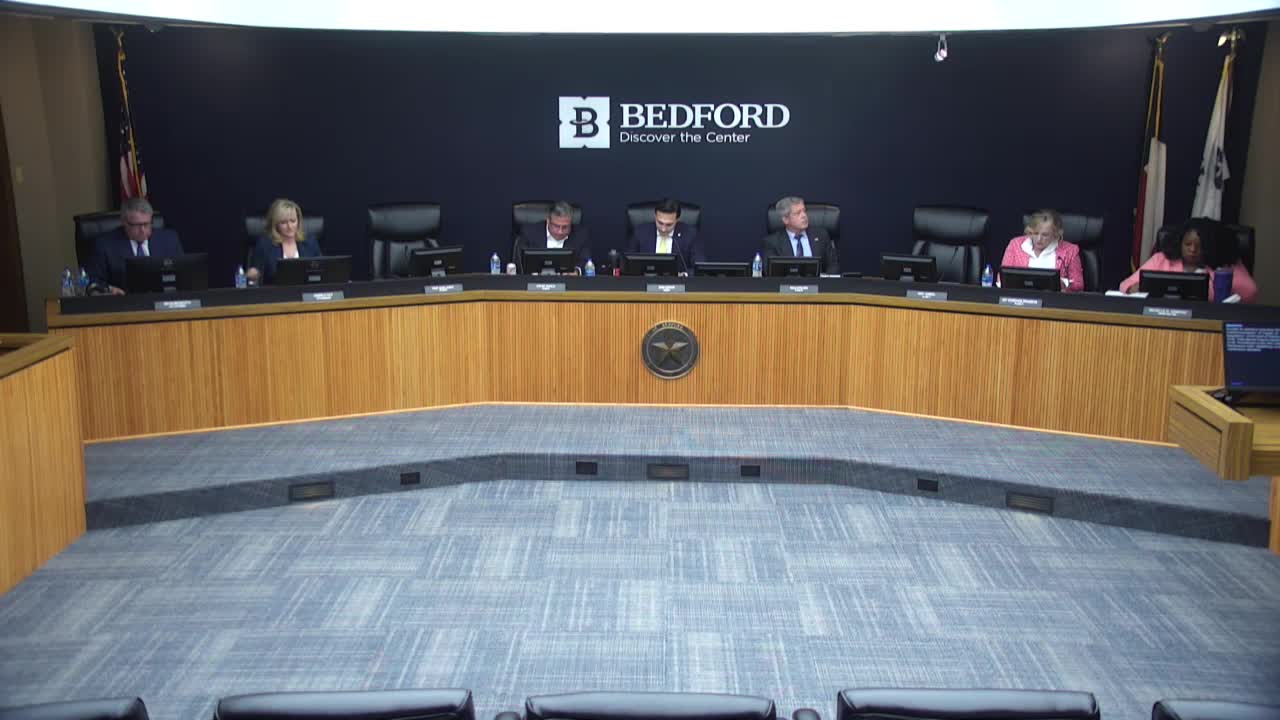Council adopts nonresidential property maintenance code to address commercial property conditions
Get AI-powered insights, summaries, and transcripts
Subscribe
Summary
Bedford adopted amendments to create nonresidential property maintenance standards drawn from the 2021 International Property Maintenance Code to give the city more enforcement tools for commercial properties, including limits on window coverings and standards for parking, landscaping, roofs and exterior repairs.
The Bedford City Council voted unanimously Oct. 14 to adopt an amendment to Chapter 22 of the city code establishing nonresidential property maintenance standards based on the International Property Maintenance Code (2021) tailored to commercial properties.
Development Director Wes Morrison told the council the amendment focuses on commercial standards because the city already maintains a residential code. The ordinance establishes requirements for exterior sanitary condition (sidewalks, parking lots, landscaped areas, fences, dumpster enclosures), exterior repairs (doors, windows, roofs), and interior sanitary and structural conditions. The amendment also addresses on-site storage and parking of company vehicles, awning maintenance, and parking-lot surfaces.
Morrison said the code limits first-floor window coverings to 50% of window area where full visibility is expected for retail suites, responding to recurring complaints about blackout coverings that conceal vacant or noncompliant uses. He emphasized the city intends to apply the ordinance with a "common-sense approach," recognizing many properties are older and will not be corrected overnight. "We're not looking if there's a crack in the concrete, we're not going after someone with a crack in the concrete," Morrison said.
On enforcement, Morrison said the city will primarily rely on municipal court to pursue violations and will use property ownership records and property managers to notify owners; the city may pursue civil actions in more severe cases. Councilors voiced broad support for the measure and asked staff about outreach and phased enforcement; staff said patrols and targeted inspections will be used and that property-owner contact lists may be developed as part of the program.
The ordinance passed unanimously.
